The Paris Olympics are in full swing, with Hong Kong fencing athlete Vivian Kong Man Wai overcoming a 1:7 deficit to turn the tables and win 13:12, fencing athlete Edgar Cheung Ka Long adding another gold medal, and swimmer Siobhan Haughey winning a bronze medal in freestyle. Many local athletes who have been quietly toiling for years, overcoming various new and old injuries, have made it to this global stage of the Olympics. Social media is flooded with Olympic information, presenting the struggle stories of athletes to the masses, and the Olympic fever is blossoming in this summer.
The American science magazine Popular Science had published an article "Why are people obsessed with the Olympics?" on the psychology behind the Olympic fever, citing three main factors:
1. Curated marketing: From the specially designed Olympic venues and tracks to tourism promotions and magnificent opening ceremonies, the Olympics have become a unique phenomenon in the business and media world over the years. Athletes attract fans, fans attract media, and media attract sponsors, creating a global frenzy.
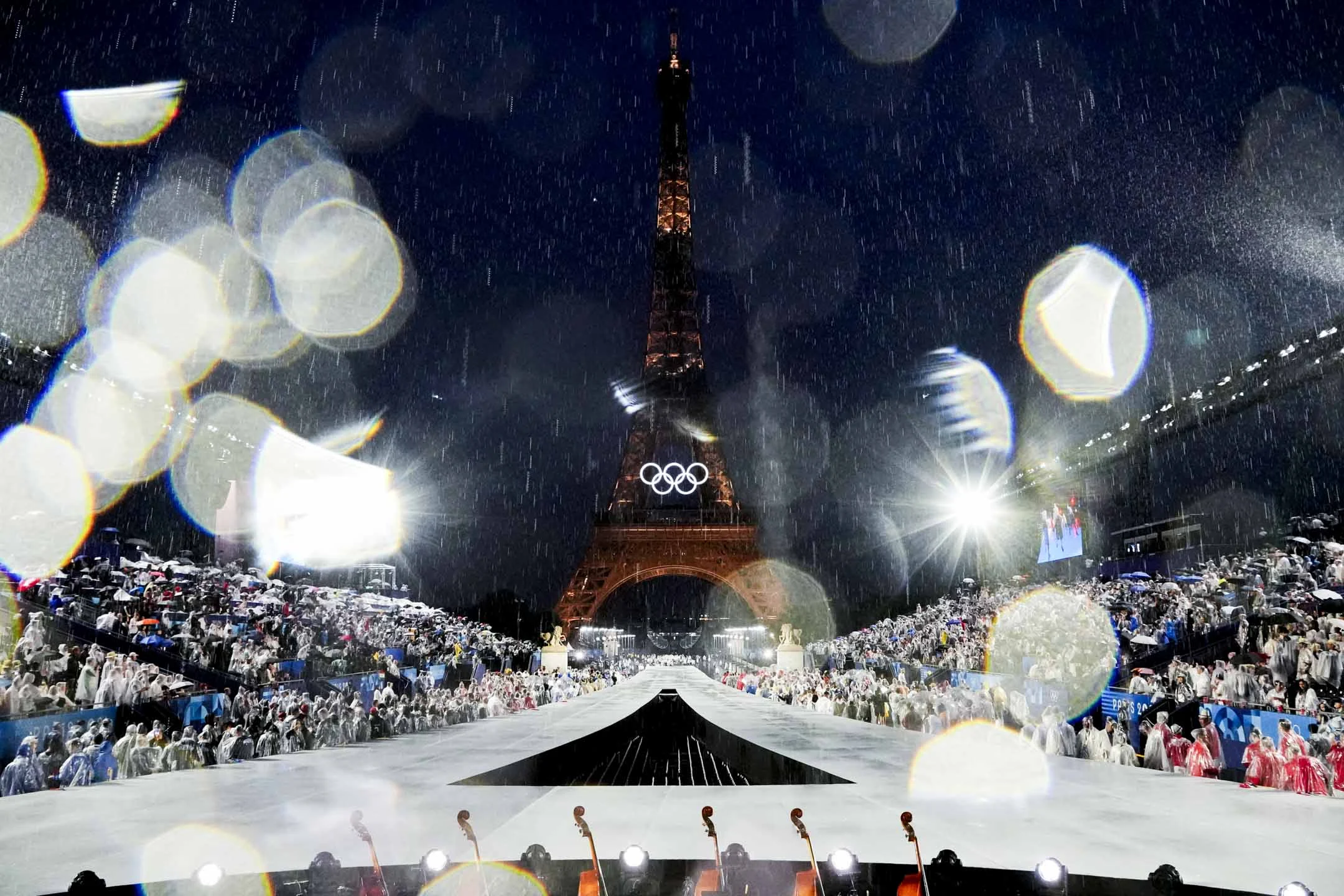
(The opening ceremony of the 2024 Paris Olympics was held in the rain. Photo: Pawel Kopczynski/ Reuters)
2. An outlet for national pride: When interviewed after the competition, Cheung Ka Long said, "We have proved that even if Hong Kong is a very small place, we can still do many different things. Believe in yourself and do not give up just because you are in a small place." This sentiment is likely to resonate with many Hong Kong people. Research indicates that humans have an innate tendency to develop a sense of belonging to their own groups. In the past, early humans were more likely to survive when they associated and identified with well-defined cliques. Evolutionary theorists believe that today’s patriotic feelings could stem from that ancient loyalty.
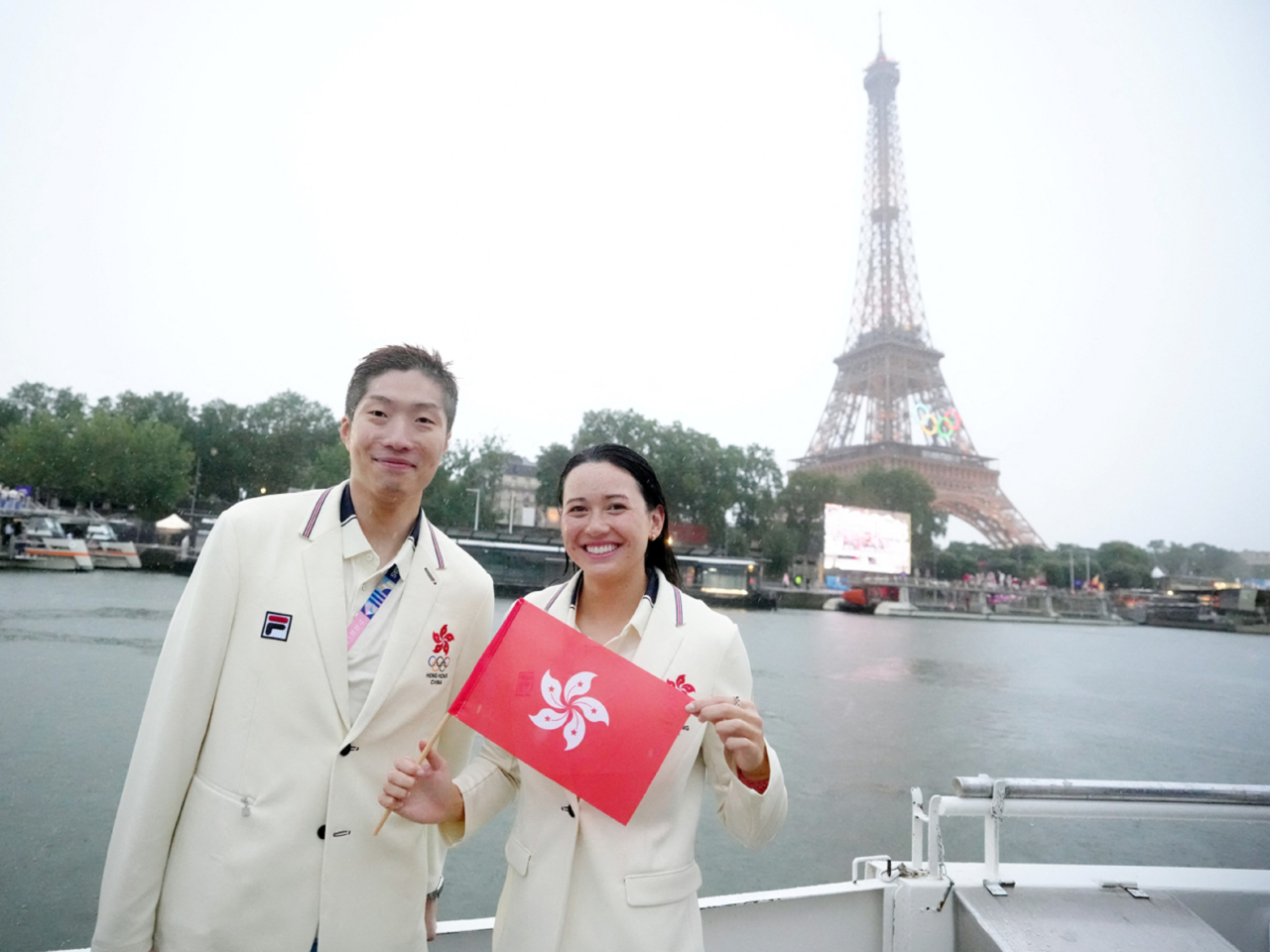
(Cheung Ka Long and Siobhan Haughey were the Hong Kong's flagbearers at the opening ceremony of the Paris Olympics Games. Photo: Reuters)
3. Compelling personal stories: The human brain is easily captivated by personal stories that we can relate to, such as the indomitable spirit and struggle of athletes striving towards their goals. Seeing the mental strength and resilience of athletes creates an emotional resonance, as we all know the feeling of working hard to achieve our own goals, which makes us more invested in the success and failures of these athletes.
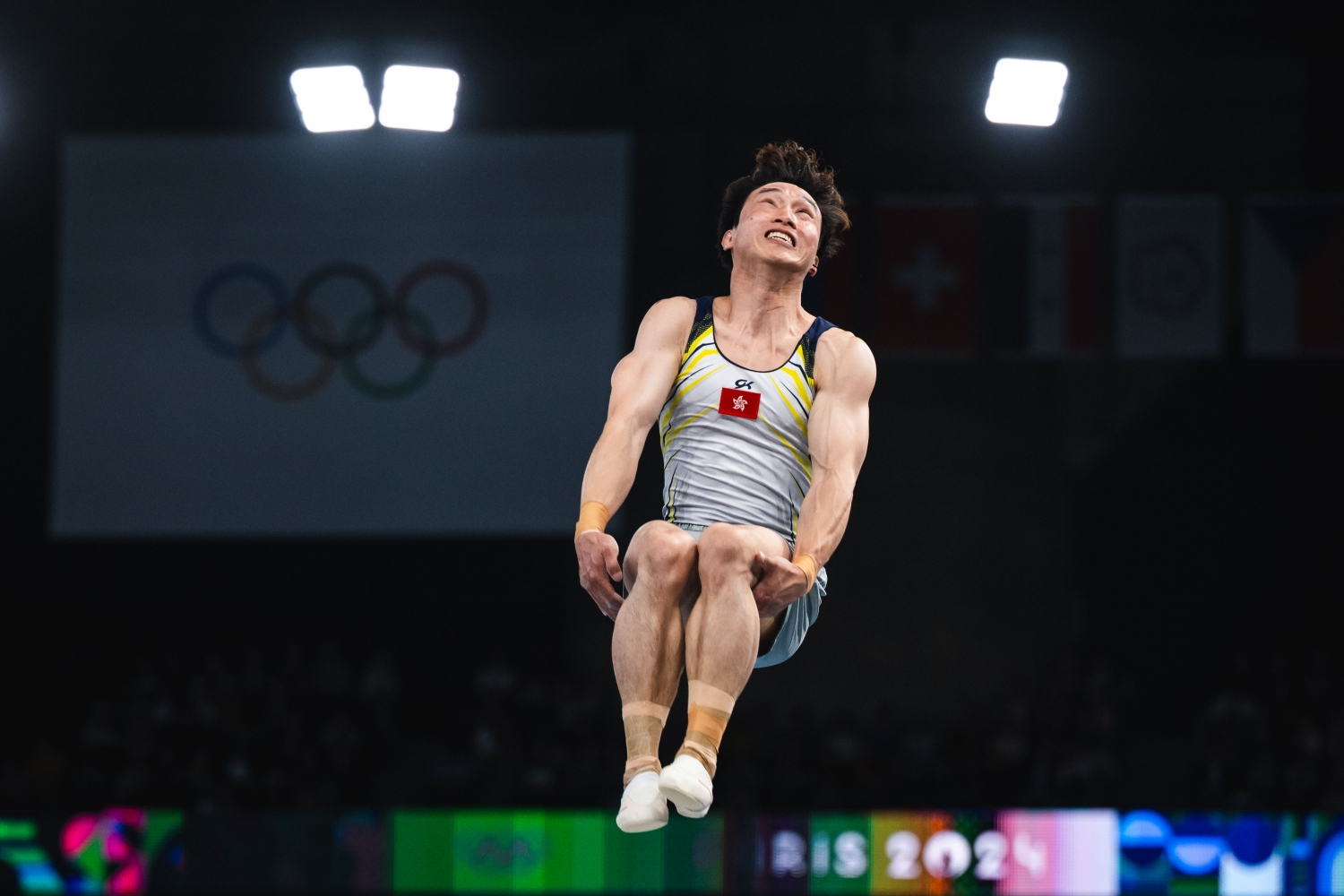
(Hong Kong gymnast Shek Wai Hung made it to the Olympics three times. Although he was eliminated in the qualifiers, he shared, "I don't feel any regret. Although the results were not as ideal, this was the most enjoyable and least stressful experience in my over 20-year athletic career." Photo by the Sports Federation & Olympic Committee of Hong Kong, China)
Everyday Inspiration from the Olympic Spirit
According to Dr Josie Perry, a sports psychologist at the British Psychological Society, "Watching sport makes us realise the power of community and triggers the sense of belonging that we all crave. We watch people trying their absolute hardest, achieving great things and looking amazing and we want a piece of that too. We want to feel part of that world."
She encourages the public to also cultivate a growth mindset in their everyday lives. "Greater motivation often comes from looking at those around you, it might be the person at Parkrun who is like you but a bit faster or the guy at your football club who has worked incredibly hard on their fitness who inspires you. They give us what is known as vicarious confidence, knowing they can do it helps us believe we can too. Setting a motivating outcome goal and breaking down that goal into much smaller controllable process goals will keep us working hard and staying active."
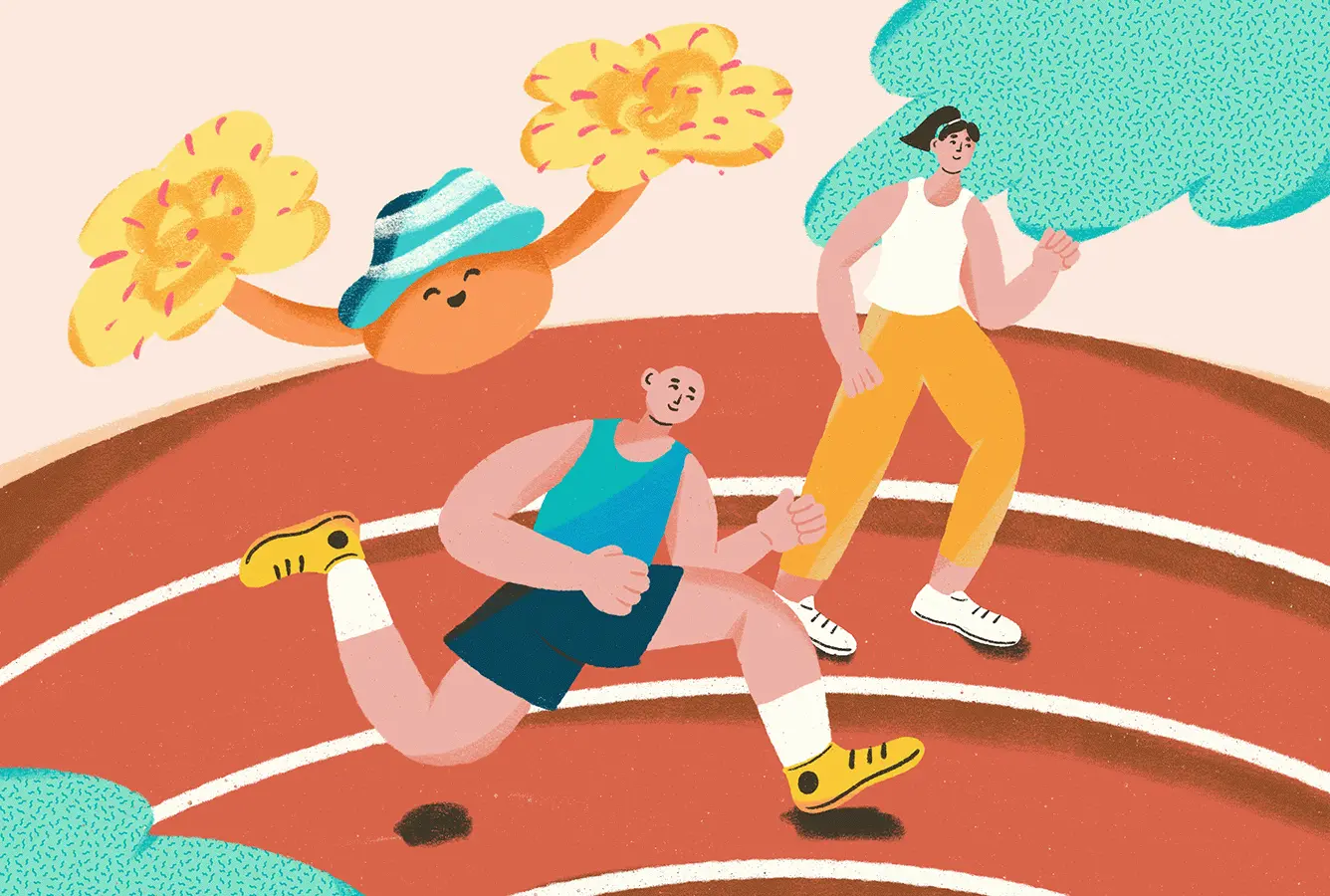
Furthermore, when we watch the Olympic competitions, we can also observe how the athletes manage stress. Many sports psychologists point out that being present is extremely important for the athletes. Focusing on the sights and sounds of the environment, letting go of the mental burden, staying active, and enjoying the task at hand. Tennis great Rafael Nadal has a famous little habit of carefully arranging his water bottles during the match, which has been dubbed the "Rafael Nadal's bottle zen" by the media. While some suggest this is simply to satisfy his sponsors, others believe it helps the athlete avoid dwelling on the previous shot and consciously brings him back to the present moment. Vivian Kong has also shared that when she fell behind in the National Games, she would intentionally pause, such as fixing her hair or calling a break, in order to quickly recompose herself.
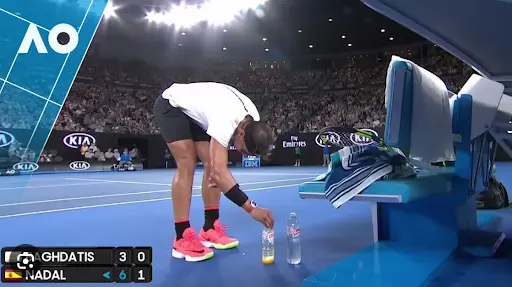
(“Rafael Nadal's bottle zen”)
Sports psychologists Dr Andrew Manley and Dr Luke Barnes from Leeds Beckett University share that "Some athletes focus on the present by listening to music, while others use positive self-talk to avoid being distracted by anxiety - it's about tailoring a technique to work for you, it may be underpinned by the same theoretical principles, but what you use will differ, the purpose is to focus your attention on what really matters to you."
“If an injury or something else unexpected happens that means athletes can't reach their goal of winning, we will work at looking to find that silver lining, focus on what else is purposeful for them. That may be helping others succeed in the sport they love or being involved with sport directly or indirectly. I think this outlook is relevant to all of us when something doesn't work out, first to acknowledge the loss rather than going straight into problem-solving mode but also to really focus on what gives you a sense of meaning in your life."
The Olympics only lasts for a little over two weeks, yet it encapsulates the years of arduous efforts made by the athletes. Regardless of whether they win or lose, we can see the sheer willpower and radiance they exude. Beyond just appreciating the thrilling competitions, we can also gain glimpses of inspiration and enlightenment from their stories, and witness the beliefs that are worth learning from.
Let's give a big cheer for all the athletes!
References:
The British Psychological Society. (2024). Life lessons from the Olympics. Retrieved from https://www.bps.org.uk/psychologist/life-lessons-olympics
The British Psychological Society. (2021). The psychology of the Olympics - why do we get Olympic fever and how can we harness it for our own wellbeing? Retrieved from https://www.bps.org.uk/news/psychology-olympics-why-do-we-get-olympic-fever-and-how-can-we-harness-it-our-own-wellbeing
Jake Bittle. (2021). Why are people obsessed with the Olympics? Popular Science. Retrieved from https://www.popsci.com/science/olympics-fans-psychology/
Travis Tae Oh. (2021). Why Is It So Fun to Watch the Olympics? Psychology Today. Retrieved from https://www.psychologytoday.com/gb/blog/the-pursuit-fun/202108/why-is-it-so-fun-watch-the-olympics

